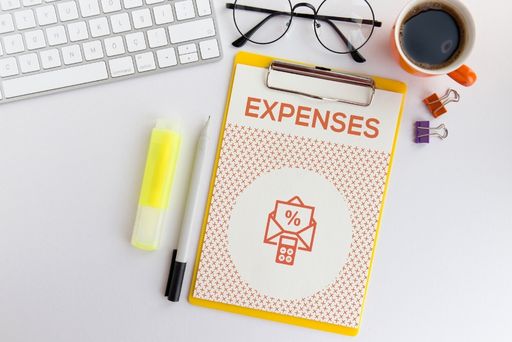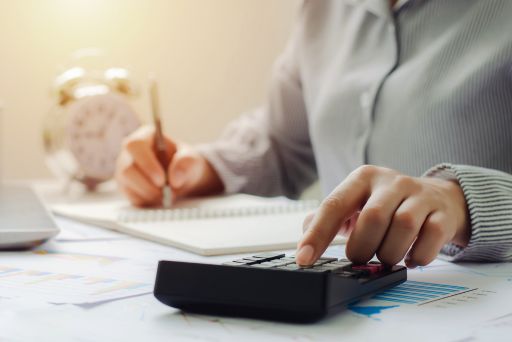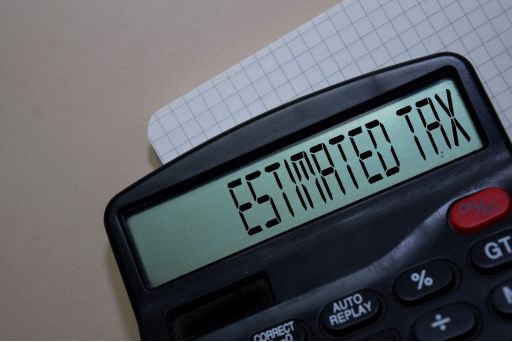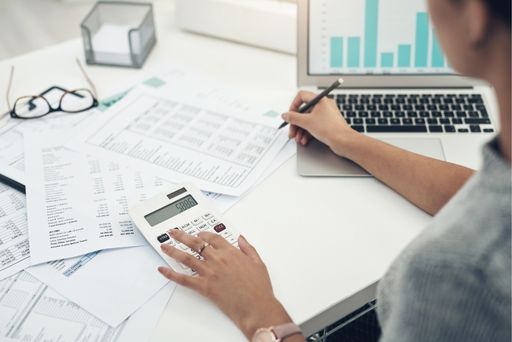Small businesses owners have many tasks to juggle just to be able operate their business efficiently. These tasks can include: daily operations, marketing, sales, products, processes, management and more. Those tasks can quickly become overwhelming for small business owners. While many day-to-day activities of owning a small business differ based on industry, bookkeeping does not.

Every business involves bookkeeping. Delayed or inaccurate bookkeeping can swiftly become a financial disaster for any business. How can you grow your business, secure capital, or even file taxes correctly without accurate and up-to-date books?
Suddenly, your finances are a mess. You’re wondering how you got here and how to catch up on bookkeeping fast. Sound familiar? Investing in bookkeeping services like Vyde streamlines your bookkeeping processes and helps you grow your business. You can also take steps now to start climbing out of the financial mess into which you’ve somehow fallen.
Bookkeeping services aside, if you’re eager to learn how to catch up on bookkeeping alone, you can follow these six simple steps to get the ball rolling.
1. Gather Your Receipts
If your receipts are scattered all over, it’s time to call them in. You’ll need to gather all of the receipts, invoices, and other financial documents related to your business, including records like:
- Bank statements
- Credit card statements
- Business expenditures
- Business revenue
- Customer accounts
- Bad debt expenses
- Vendor accounts
- Receipts for non-deductible items
- Deposits / ATM slips
- Reconciled bank statements
Additionally, if you have customers who are overdue on their payments, we recommend sending out pending invoices to those customers to avoid potential bad debt expenses.
2. Reconcile Bank Accounts
Next, it’s time to double-check your records. Take time to sit down with your credit card and bank statements. These statements should always match your business records, vendor accounts, and customer accounts.
If you find a discrepancy or if they don’t add up, locate the error before moving on to step three. Unfortunately, discrepancies and human error are common problems for business owners who aren’t using a team of experts.
3. Separate Personal and Business Expenses
An essential step to knowing how to catch up on bookkeeping is to take measures to prevent your books from becoming messier in the future. If you already separate your personal and business expenses, great. You can move on to step four. If not, you’ll need to separate those expenses to keep your books up to date.
We always recommend keeping personal and business accounts separate, including bank accounts, credit cards, and other finances. Accounts that are tangled together create unnecessary stress when doing your bookkeeping or filing your taxes. Additionally, you could potentially be held personally liable for any loans for your business.
If you’re unsure what purchases or expenses qualify as a business expense, review what items the IRS considers to be in that category.

4. Go Paperless
Going paperless will make your life easier whenever it’s time to update your books. Now’s a good time to start because you’ve already gathered your documents and receipts. Create digital records of all these financial documents independently or by using online tools, software, or a Vyde account.
5. Collect Tax Documents
Tax season is an important time of the year for all American workers, but most businesses need to file additional forms for the tax year.
Did you pay an employee or independent contractor this year? You’ll likely need to file at least one of the following forms:
Employees: W-2 Forms
You must file a W-2 for all your employees for the tax season.
Independent Contractors: Form 1099-MISC and W-9
You’ll only need to file additional forms for independent contractors that you paid more than $600 during the tax year.
Your independent contractors must complete a W-9 form and return it to you. This form contains their taxpayer information, which you’ll use on the 1099-MISC form. The 1099-MISC form is required to track your payments to independent contractors and ensures they receive their tax documents. Get your tax documents in order, including what you’ll need for the above forms. Then, once your bookkeeping is up to date, keep it updated.
6. Have Everything Reviewed by a Tax Professional
Now that you know how to catch up on bookkeeping, we strongly recommend using a tax professional. A tax professional removes much of the stress of tax season and can verify your financial information related to your return.
Additionally, using a tax professional will ensure that your business receives the tax deductions to which you’re entitled. Most tax professionals provide guarantees in the event of an audit and will represent you, speaking to the IRS on your behalf.

Catch Up on Your Bookkeeping With Vyde
As a business owner, you have plenty of obligations outside of bookkeeping, and you’re likely not an expert. You wouldn’t handle your legal work, so why go at bookkeeping alone?
Vyde provides flexible business solutions that fit your needs and budget. We make bookkeeping for small businesses simple so you can focus on what you do best. The peace of mind about bookkeeping and taxes that we provide help you save time, stress, and money along the way. Contact us to start on your path to getting caught up on your business’s bookkeeping today!
Frequently Asked Questions:
1. Why is bookkeeping important for small business owners?
Bookkeeping is essential for tracking business finances, ensuring accurate tax filing, and making informed financial decisions. Without it, businesses can quickly face financial problems and lose track of revenue and expenses.
2. What happens if I delay my bookkeeping tasks?
Delaying bookkeeping can lead to disorganized finances, missed tax deductions, inaccurate financial reporting, and even potential tax penalties. It’s crucial to stay on top of your books to maintain financial health.
3. How can I prevent mixing personal and business expenses?
Keep separate bank accounts and credit cards for your personal and business transactions. This not only helps in accurate bookkeeping but also protects your personal assets from business liabilities.
4. What documents should I gather to catch up on bookkeeping?
You should collect receipts, bank statements, credit card statements, invoices, and any other financial documents related to your business. These are crucial for accurately recording income and expenses.
5. Should I hire a tax professional after catching up on my bookkeeping?
Yes, hiring a tax professional ensures your financials are reviewed for accuracy, helps you maximize deductions, and protects you in case of an audit by the IRS. A professional can provide peace of mind during tax season.




















